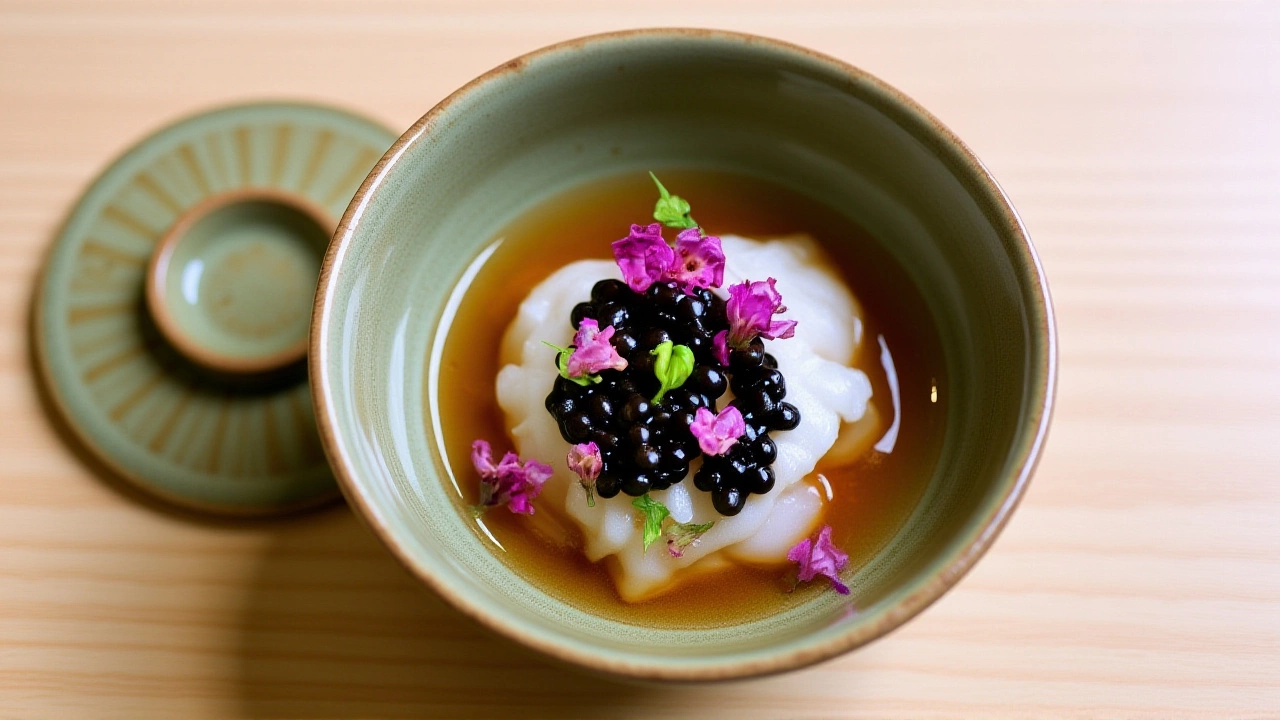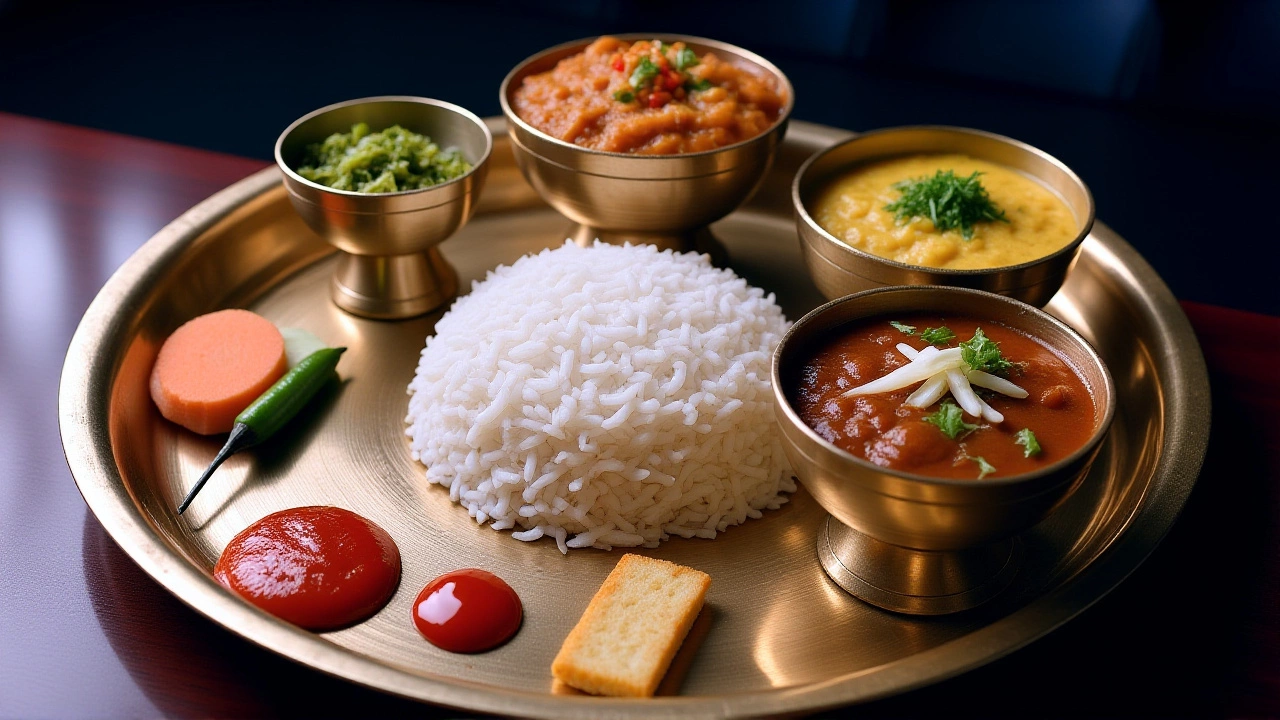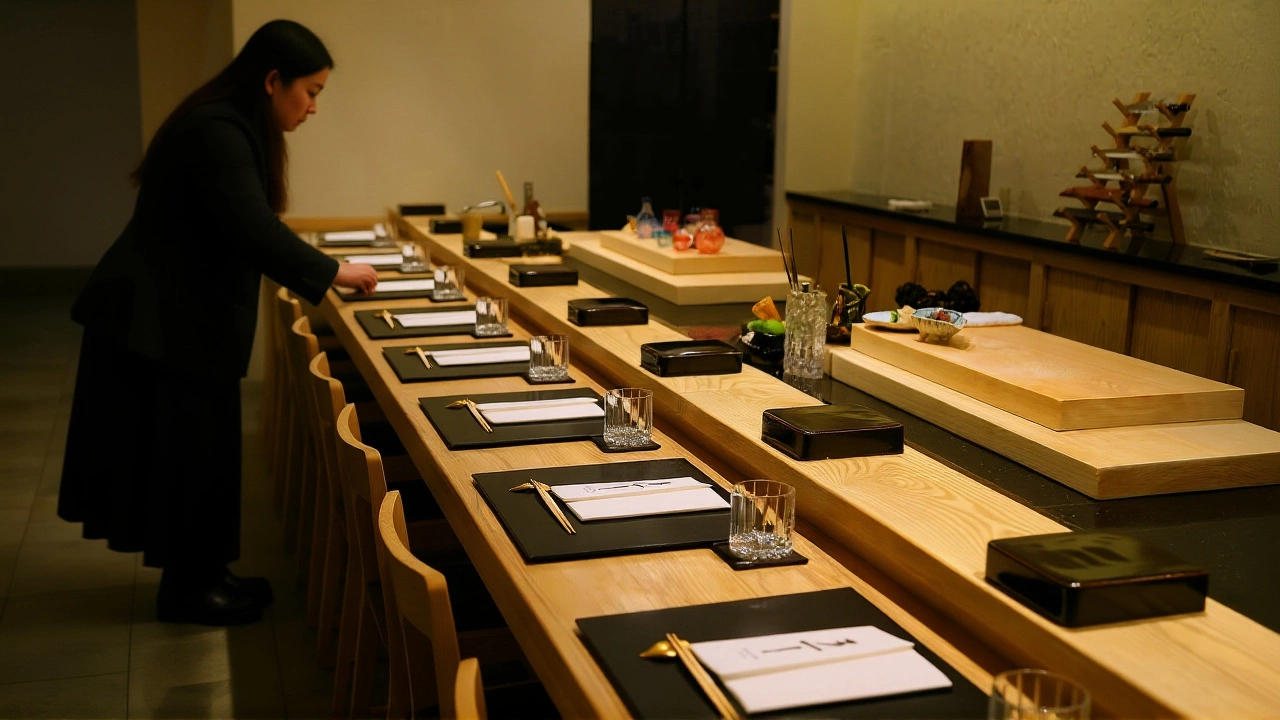At exactly 8:00 PM on November 18, 2025, the quiet hum of a 12-seat counter in Boston’s South End echoed across the culinary world. 311 Omakase, tucked into a converted rowhouse at 311 Harrison Avenue, became the first restaurant in Boston’s history to earn a Michelin star — a moment decades in the making, and one that redefined the city’s place on the global food map.
The Moment Boston Entered the Michelin Spotlight
The announcement came not in Boston, but at the Kimmel Center for the Performing Arts in Philadelphia, during the unveiling of the inaugural Michelin Guide Northeast Cities 2025. For the first time ever, Boston joined New York City, Chicago, Washington, DC, and Philadelphia in Michelin’s U.S. coverage — a seismic shift after 19 previous editions that ignored the city entirely. The star went to 311 Omakase, led by chef Wei Fa Chen, whose seasonal omakase menu impressed inspectors with its precision, texture, and seafood flown in daily from Tokyo’s Tsukiji market."We were able to witness and taste the passion of chefs and restaurant teams across all five cities," said Gwendal Poullennec, International Director of the Michelin Guide, during the ceremony. "Boston didn’t just show up. It arrived with authority."
A Culinary Awakening Decades in the Making
For years, Boston’s dining scene was overlooked — not because it lacked talent, but because it lacked visibility. While New York and Chicago had Michelin guides since 2005, Boston’s restaurants operated in the shadows. The city ranked 12th nationally in Zagat’s 2005 food survey, but no major international guide took notice. Inspectors began anonymous visits in 2024, quietly tasting through 17 recommended spots — including Toro, Oleana, and Neptune Oyster — before settling on 311 Omakase as the standout.What made Chen’s restaurant different? It wasn’t the decor. It wasn’t the price tag — $230 per person, no reservations beyond three weeks out. It was the silence. The ritual. The way each piece of fish — uni from Hokkaido, amberjack cured in yuzu kosho, sea urchin dusted with nori salt — landed on the counter like a poem. "It’s not about showing off," Chen told a local reporter after the announcement. "It’s about trust. You give me your time, your appetite. I give you something you can’t get anywhere else."
Behind the Star: The Man, the Menu, the Mission
Born in Taiwan and trained in Kyoto, Wei Fa Chen moved to Boston in 2015 after stints in San Francisco and Los Angeles. He opened 311 Omakase in 2021 with a $150,000 loan from his family and a single reservation book. He hired two apprentices — both former line cooks from the now-closed Sushi Ota — and spent two years refining the menu, sourcing fish through a single Tokyo wholesaler who ships every morning via FedEx. The result? A 16-course experience that changes daily, based on what arrives fresh. No printed menus. No substitutions. Just the chef’s rhythm."It’s like jazz," said regular diner and food historian Dr. Lena Ruiz. "You don’t know the next note, but you trust the musician. That’s what Chen does. He doesn’t perform. He converses."

The Cocktail King of Brookline
While 311 Omakase claimed the star, another Boston-area name stole the spotlight: Chompon “Boong” Boonnak, the Thai-born bartender behind Mahaniyom in Brookline. He won the Exceptional Cocktails Award — a new honor partnered with Hungarian wine producer Tokaj — for reinventing classic drinks with Thai flavors. His signature? A pineapple-pandan mojito made with fresh pandan leaves, house-made syrup, and a splash of tamarind bitters. "Back home, you drank whiskey soda," Boonnak said. "Here, I made people taste something they didn’t know they were missing."He’s also a quiet ambassador for Boston’s bar scene, recommending OFFSUIT, The Wig Shop, Hecate, and Spoke Wine Bar as must-visits. "Boston looks small," he said. "But turn a corner, and there’s a whole world."
What This Means for Boston’s Future
The 2025 guide includes 664 restaurants across five cities — 17 in Boston alone. But only one star. That’s not a flaw. It’s a beginning. Michelin’s annual cycle means evaluations for the 2026 guide are already underway. Inspectors are back in Boston, quietly revisiting 311 Omakase, and tasting through the other 16 recommended spots. Could another star be coming? Possibly. Could a second star? That’s no longer unthinkable."This isn’t a trophy," said food critic Marcus Bell, writing for Boston Magazine. "It’s a starting gun. Boston spent 20 years proving it belonged. Now the world is listening."

What’s Next?
The full 2025 Northeast Cities guide is live at guide.michelin.com, though the website isn’t required in the output. What’s clear: Boston’s culinary identity has shifted from "underrated" to "unignorable." Restaurants are already reporting a 40% increase in out-of-town reservations. Chefs from Providence to Portland are calling Chen for advice. And for the first time, Boston families aren’t just eating out — they’re talking about it like it’s art."I used to tell people, ‘Boston’s got good ramen,’" said local food blogger Anya Patel. "Now I say: ‘Boston’s got a Michelin star. And you better get a reservation before it’s gone."
Frequently Asked Questions
How did 311 Omakase earn a Michelin star when no Boston restaurant had before?
Michelin inspectors spent over a year anonymously visiting Boston restaurants throughout 2024 and early 2025. 311 Omakase stood out for its flawless execution of seasonal omakase, pristine seafood flown in daily from Japan, and the chef’s ability to create emotional resonance through minimalism. Unlike flashy restaurants, Chen’s quiet, ritualistic approach — no menus, no substitutions — aligned with Michelin’s emphasis on authenticity and technical mastery.
Who is Chef Wei Fa Chen, and why is his background significant?
Chef Wei Fa Chen is a Taiwanese-born chef trained in Kyoto, Japan, who moved to Boston in 2015 after working in San Francisco and Los Angeles. His background bridges East Asian culinary traditions with Boston’s immigrant-driven food culture. He opened 311 Omakase in 2021 with just $150,000 in family savings, operating out of a modest South End rowhouse — making his Michelin win a rare triumph of grit over glamour.
What other Boston restaurants were recognized in the 2025 guide?
The 2025 guide listed 17 Boston-area restaurants as recommended, including Toro, Oleana, Neptune Oyster, Giulia, and Urban Hearth. These spots were noted for consistency, quality ingredients, and regional character — but none reached the elevated standard required for a star. Their inclusion signals Boston’s depth: it’s not just one great restaurant, but a thriving ecosystem.
Why does this matter beyond foodies?
Michelin stars attract tourism, elevate local pride, and drive economic growth. Boston’s first star is expected to generate over $20 million in additional dining-related revenue in 2026 alone. It also validates decades of work by immigrant chefs, small business owners, and food artisans who’ve long believed Boston deserved recognition — even when no one else did.
Is this a one-time event, or will Boston get more stars in the future?
This is just the beginning. Michelin evaluates restaurants annually, and inspectors are already conducting anonymous visits for the 2026 guide. With Boston’s culinary scene rapidly evolving — and 17 restaurants already on the radar — a second star is plausible. The city’s reputation has shifted from "under-the-radar" to "on-the-rise," and Michelin’s next move will likely reflect that momentum.
How did Chompon “Boong” Boonnak win the Exceptional Cocktails Award?
Boonnak, a Thai national who arrived in the U.S. in 2010, transformed Mahaniyom into a cocktail laboratory by blending classic American bar techniques with Thai ingredients like pandan, tamarind, and kaffir lime. His pineapple-pandan mojito and strawberry-pandan virgin mojito became signature drinks, praised for their balance and cultural authenticity. The award, sponsored by Tokaj, highlights how Boston’s beverage scene is now as innovative as its food.
